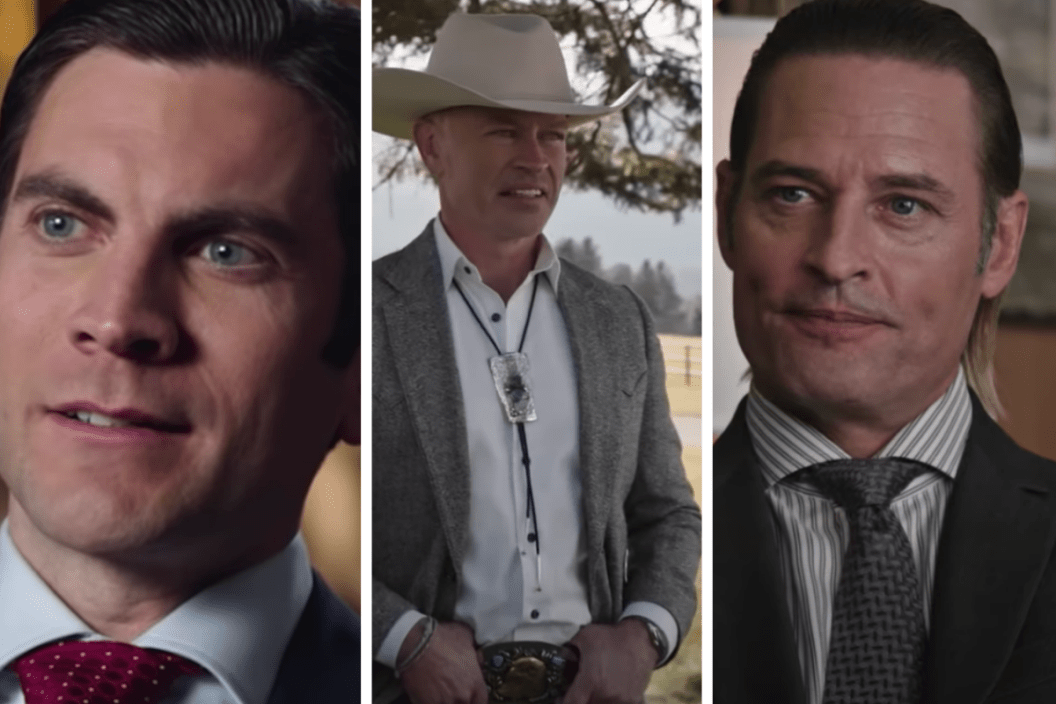The explosive finale of “1923” doesn’t just close a chapter for the Dutton family—it plants the seeds for what could become the most formidable adversary the Yellowstone universe has ever seen.
As Taylor Sheridan’s saga continues to expand, the final moments of “1923” Season 2 offer more than just resolution; they offer a prophecy about the future of Montana, the Duttons, and the forces that threaten them.

Throughout “1923,” Banner Creighton (Jerome Flynn) has been a persistent thorn in the Duttons’ side, but in the season’s final moments, his story takes a dramatic turn.
After betraying his ruthless partner Donald Whitfield (Timothy Dalton), Banner tries to get his family out of Montana, buying train tickets for his wife Ellie and son Henry to Oregon. Although Banner is ultimately gunned down by Sheriff McDow, his actions and especially his last words leave a lasting impact.
Banner’s parting advice to his son is chilling: “A man can’t get rich in Montana. He gets rich somewhere else, then he comes to Montana and gets even richer.”
This line is more than just a reflection on his own failures—it’s a warning and a blueprint for what’s to come. With Ellie and Henry escaping to Oregon, the stage is set for Henry to return one day, wealthy and vengeful, ready to reclaim what he believes is rightfully his and to avenge his father’s death.
This possibility is especially tantalizing as the Yellowstone universe prepares for its next prequel, “1944.” The time jump of two decades gives Henry ample time to grow up, build a fortune in Oregon—perhaps through gold, timber, or industry—and return to Montana as a powerful new antagonist.
His motivation is clear: the Duttons played a role in his father’s downfall, and the wounds of that loss will likely fuel his ambition and anger.
But the finale hints at an even broader threat. Banner’s words capture a truth about Montana and the Duttons’ ongoing struggle: the most dangerous enemies aren’t always homegrown.

They are outsiders—men who make their fortunes elsewhere, then descend on Montana with money, ambition, and the intent to conquer. These are not cowboys or cattle barons, but businessmen, tycoons, and corporate raiders who see the land not as a legacy but as an investment.
The future villain of “Yellowstone” may not carry a gun or ride a horse. He may arrive in a private rail car, wearing a silk tie and a three-piece suit, offering gifts and promises of partnership while plotting to dismantle everything the Duttons have built.

His power will lie not in violence, but in influence, wealth, and the ability to manipulate systems the Duttons can barely comprehend.
As the world shifts from horses to horsepower, and as railroads and corporations tighten their grip on the American West, the Duttons’ greatest challenge will be facing an enemy who fights with contracts, not bullets. The finale of “1923” makes it clear: the next big villain is on the horizon, and he’s coming not just for the Yellowstone ranch, but for the soul of Montana itself.
—
